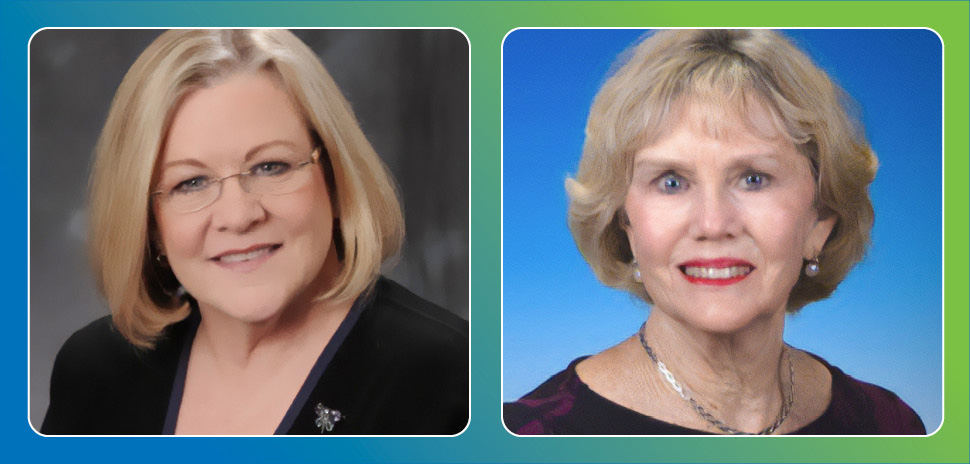Nursing is the largest segment of the healthcare workforce, says Bruce Springer. That’s why the CEO and founder of Dallas-based Prolucent Healthcare, which provides workforce optimization software and services in the sector, calls it “essential” to expand nurse representation to differentiate the company’s “decision making on many levels.”
This week—a month after Prolucent secured $11.5 million in Series A funding and announced plans to expand its team along with adding to its product capabilities—the Dallas-based company added two nationally recognized nurse leaders to its management team and board of directors.
Carol Bradley was named chief nurse executive and Rhonda Anderson was appointed to its board of directors.
Nurse leadership affirms the importance of the work

Carol Bradley (left) and Rhonda Anderson
“That we have been able to attract such accomplished nurse leaders of Carol and Rhonda’s caliber affirms the importance of the work we are doing to bring modernized and sustainable solutions to workforce needs in healthcare, said Springer in a statement.
In the chief nurse executive role, Bradley brings more than 30 years of leadership in healthcare and says the company’s approach to workforce optimization is unique.
“Prolucent is in a promising position for growth as the healthcare industry continues to face unprecedented labor challenges,” said Bradley, who was also a past president of AONL (American Organization for Nursing Leadership) and an editor at NurseWeek,
New board member Anderson is the current president of the American Nurse Credentialing Center, a principal at RMA Consulting, and a surveyor for Global Healthcare Accreditation. Anderson’s awards include the American Organization of Nurse Leaders’ Lifetime Achievement Award.
Meeting a healthcare need

Prolucent Healthcare Founder and CEO Bruce Springer
The healthcare tech company, which launched in August 2020, solves labor challenges in healthcare at a time when the industry is seeing unprecedented shortages magnified by the pandemic.
Prolucent addresses the healthcare staffing issue from both ends—it offers a recruiting and workforce management service for employers as well as an online job search marketplace for healthcare workers. Its Liquid Compass platform uses artificial intelligence and advanced analytics to improve healthcare workforce recruitment, utilization, and cost.
Unprecedented staffing shortages
Last fall a Moody’s Investor Service report found staffing shortages beyond clinical staff to other healthcare areas such as dietary and environmental services. And an Association of American Medical Colleges report from last June predicted a potential shortage of US physicians (combined primary and non-primary) between 37,800 and 124,000 by 2034. The report also found a large portion of physicians are nearing retirement age.
“With an intensifying labor shortage further fueled by COVID-related issues and worsening due to the changing needs of workers, there is an urgent need for cost-effective and sustainable workforce solutions that streamline how hospitals and health systems connect with, access, and manage the talent they need,” Springer said.
At the time of Prolucent’s Series A funding announcement, Austin Walters, co-founder and managing partner of SpringTide Ventures (a co-leader in the funding round), said, “Now more than ever, the healthcare labor management market is ripe for innovation, and in need of talent solutions that leverage artificial intelligence and analytics to help inform critical decision making.”
![]()
Get on the list.
Dallas Innovates, every day.
Sign up to keep your eye on what’s new and next in Dallas-Fort Worth, every day.





























